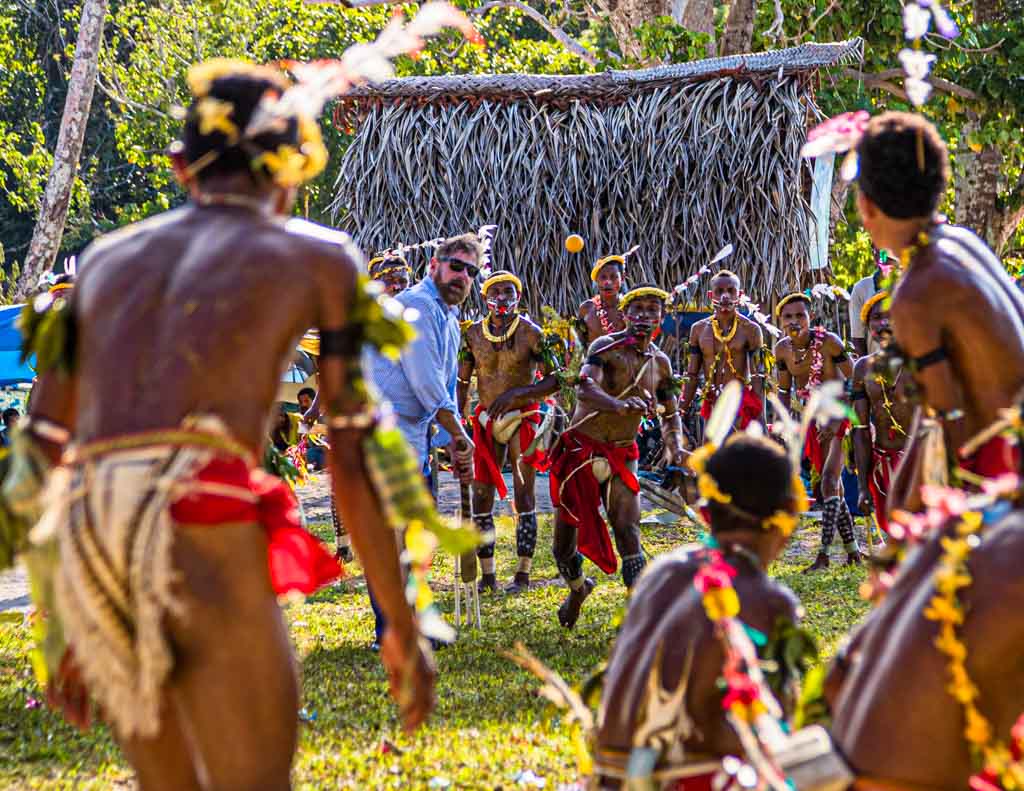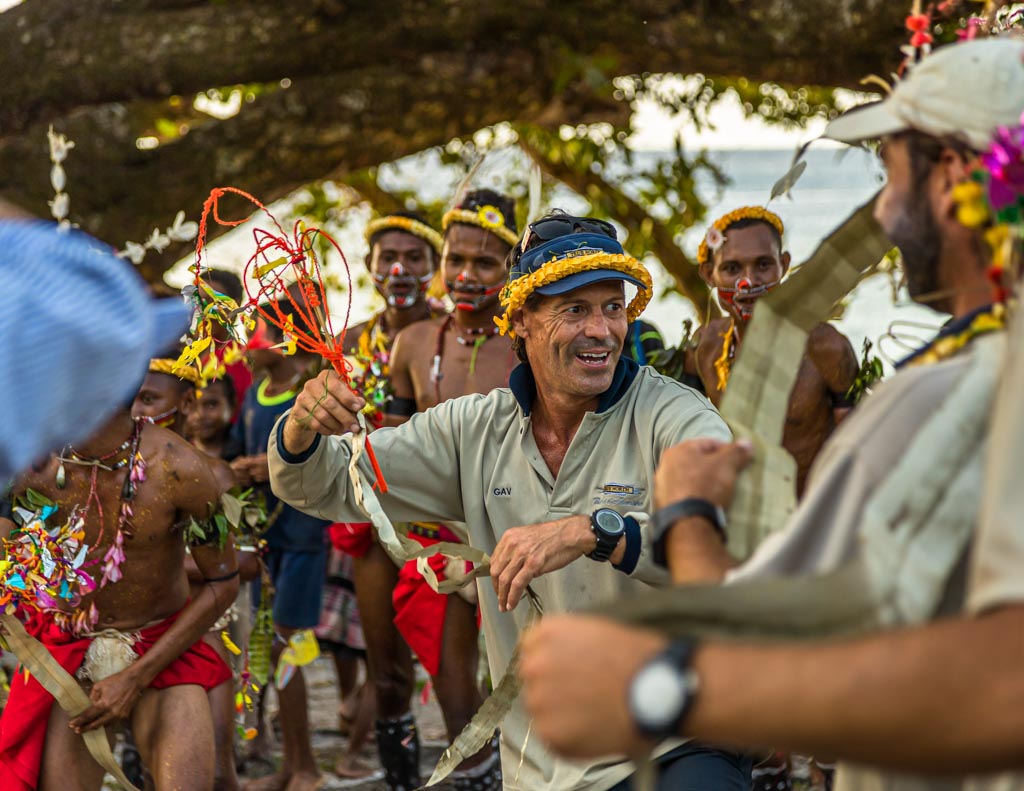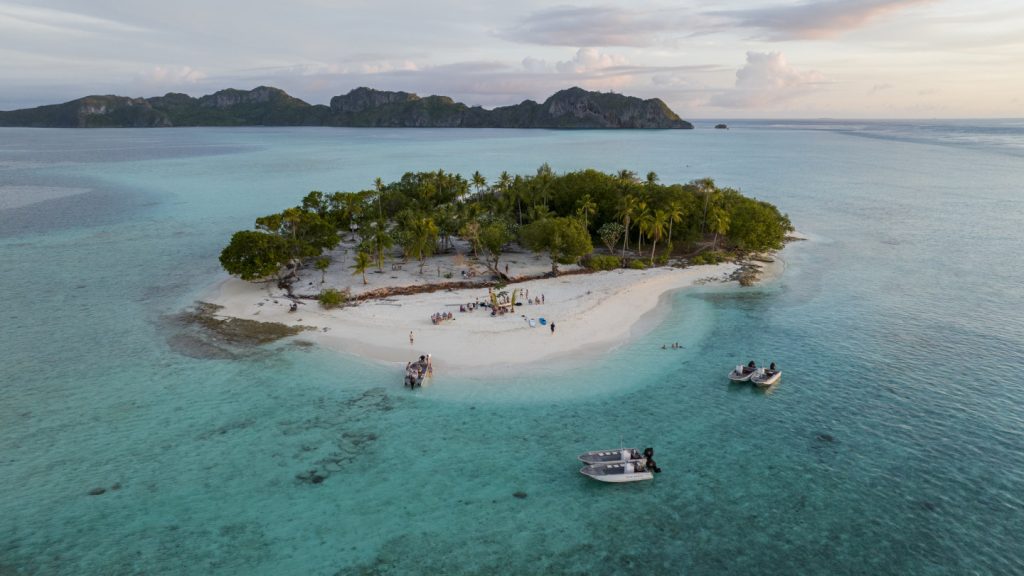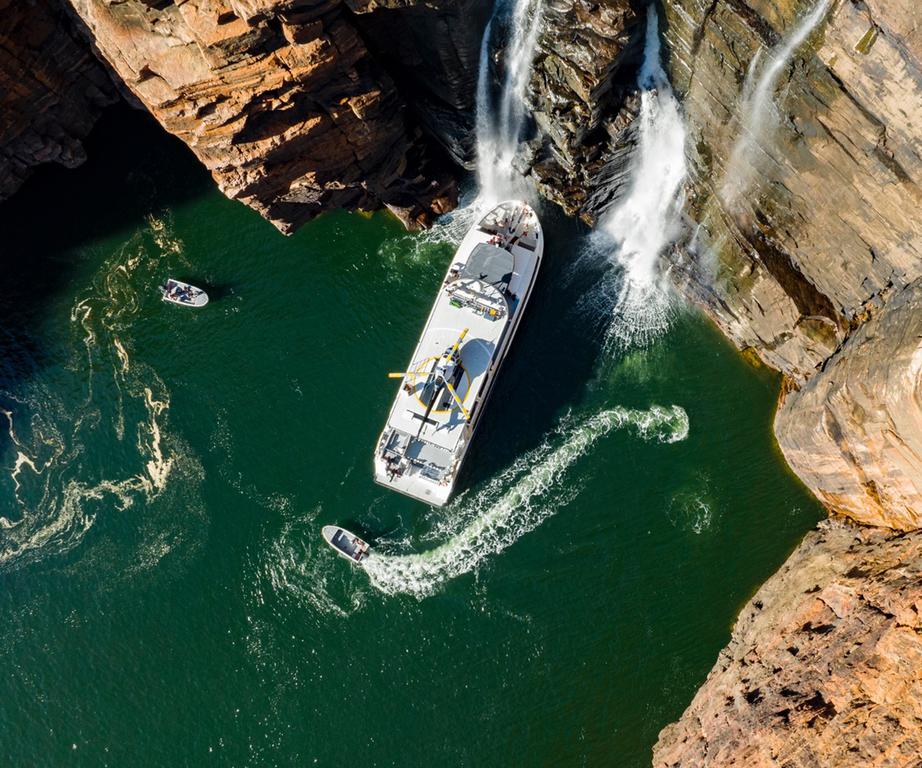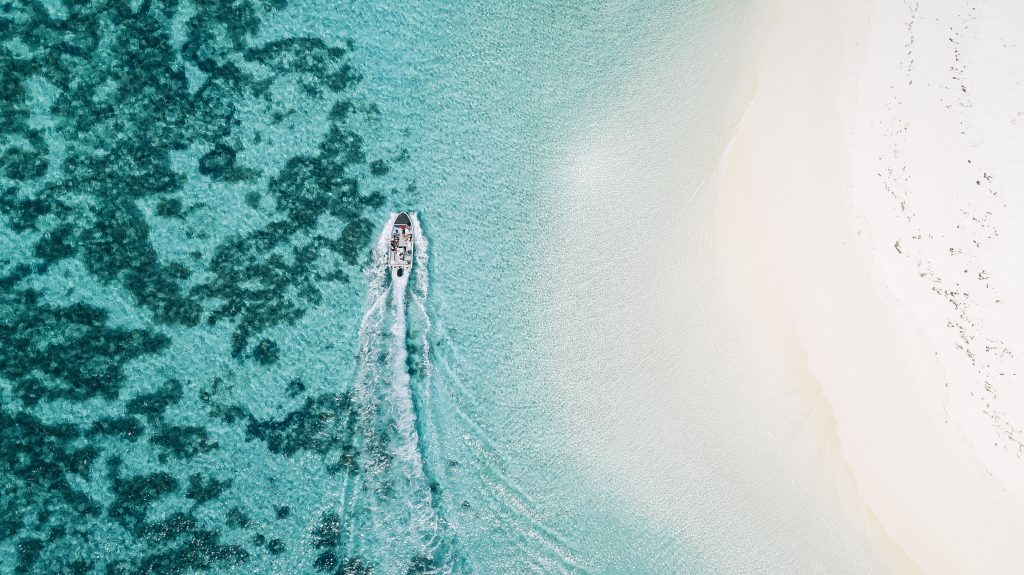Front Row Society – Georg Berg
The expedition ship True North is the ideal starting point for encounters with islanders who rarely receive foreign visitors. Georg Berg had a varied program in eleven days.
Early in the morning, Simon Tewson contacted the residents of several huts on Panasia Beach. Simon is on board the True North as a tourist guide. He grew up in Papua New Guinea with his Australian parents and helps with communication. I am introduced to Pidgin and given permission to take photos. The True North is in sight at anchor and John, who speaks to us for the families living here, is full of praise for our captain. Never before has such a large ship come so close to the settlement in the labyrinth of corals.
Simon inquires about the wellbeing of the islanders. If water or food is missing, the True North would help with on-board means. But everyone is healthy here and since it had rained enough in the days before, the tanks are full of water. The next time we went ashore we would have helped out with some canisters. Finally, the True North produces 1,500 liters of drinking water per hour through reverse osmosis.
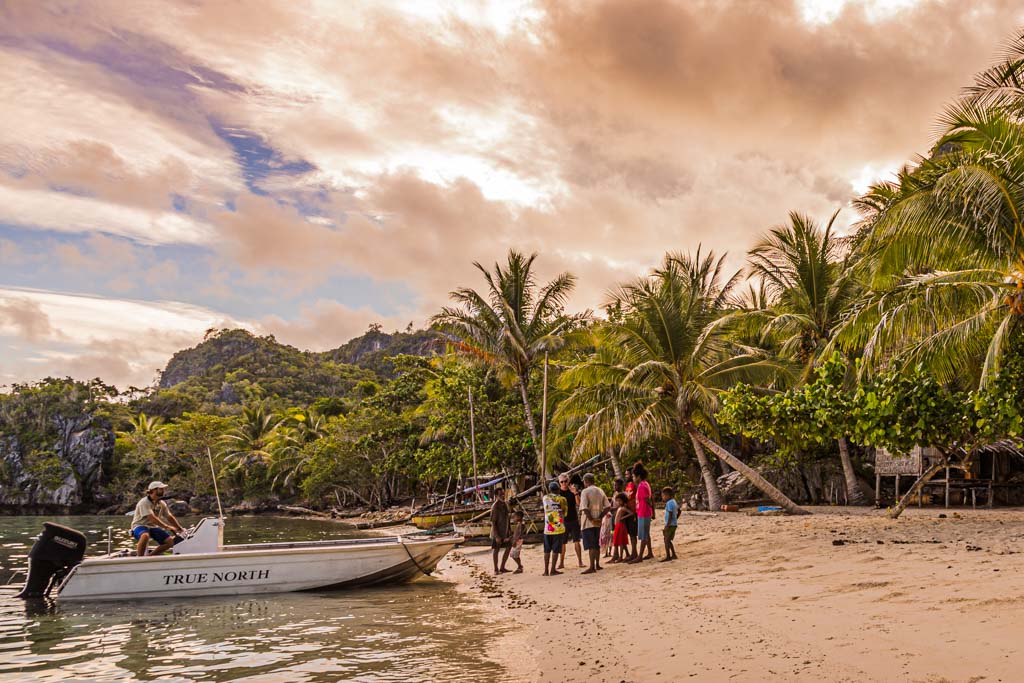
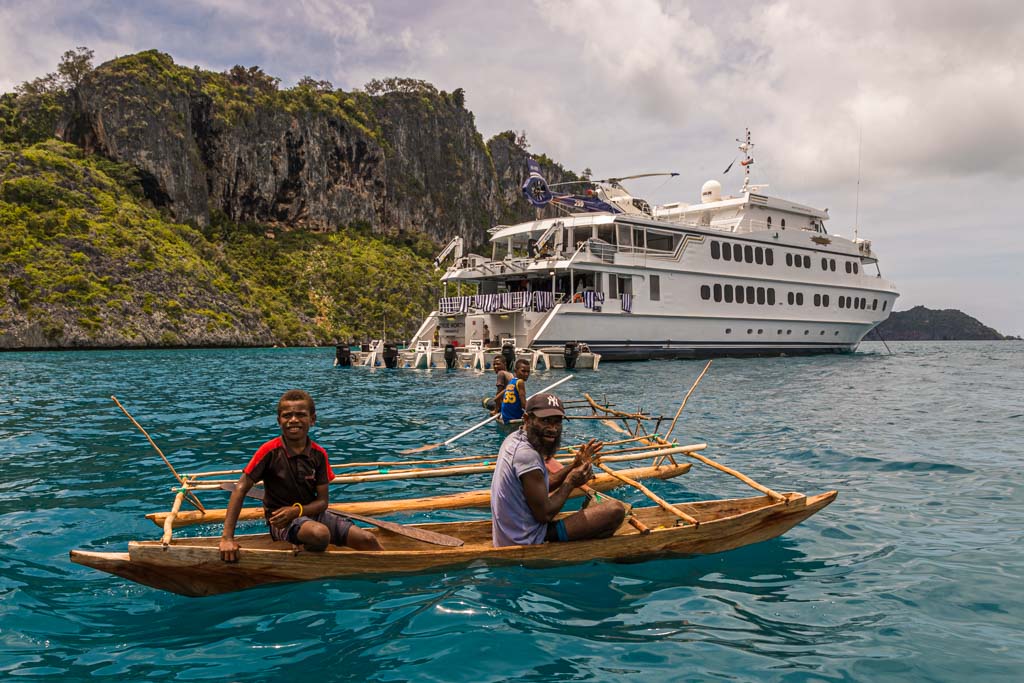
On the beach it is discussed what awaits True North guests on the island. John says goodbye to his family and accompanies our little vanguard back to the ship, from which he will accompany our expeditions for the day.
With waterproof footwear, which is also suitable for a hike with a climb after the wet landing, we reach the small entrance of a cave, which opens inside to a huge natural cathedral. The sky is not visible, but daylight falls from above and rainwater is collected on a kind of platform under a natural funnel.
On the trail of cannibalism
A second excursion in the afternoon will take us to a mysterious place of worship on the neighboring island. Hardly a trail is visible on the sharp-edged rock. Nevertheless, we are on the trail of cannibalism that has been practiced until recently.
We enter an inconspicuous cave. This place was still a place of worship in the previous century. After armed conflicts, the enemies killed were eaten here. With this magical act one believed to acquire their powers. Simon later tells us that a few years ago he spoke to someone who attended such a cannibal meal.
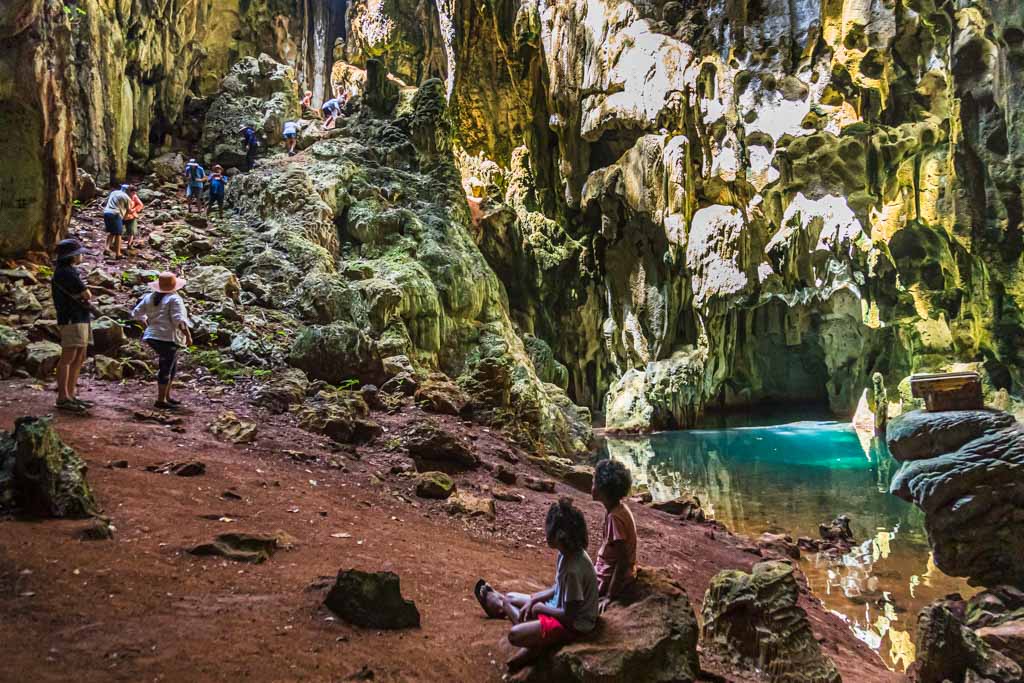
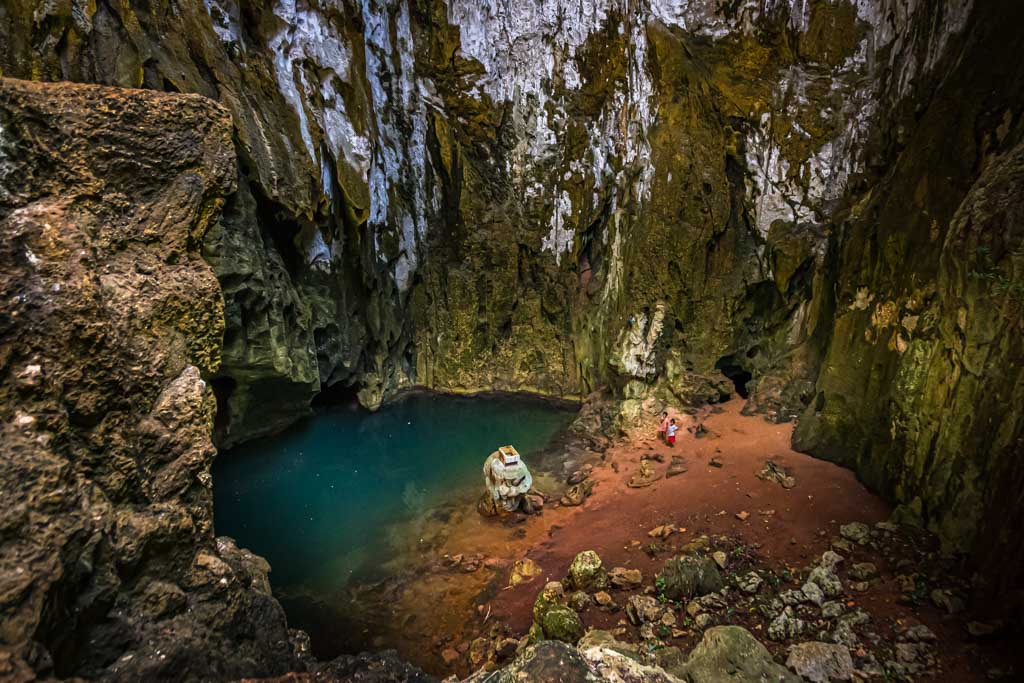
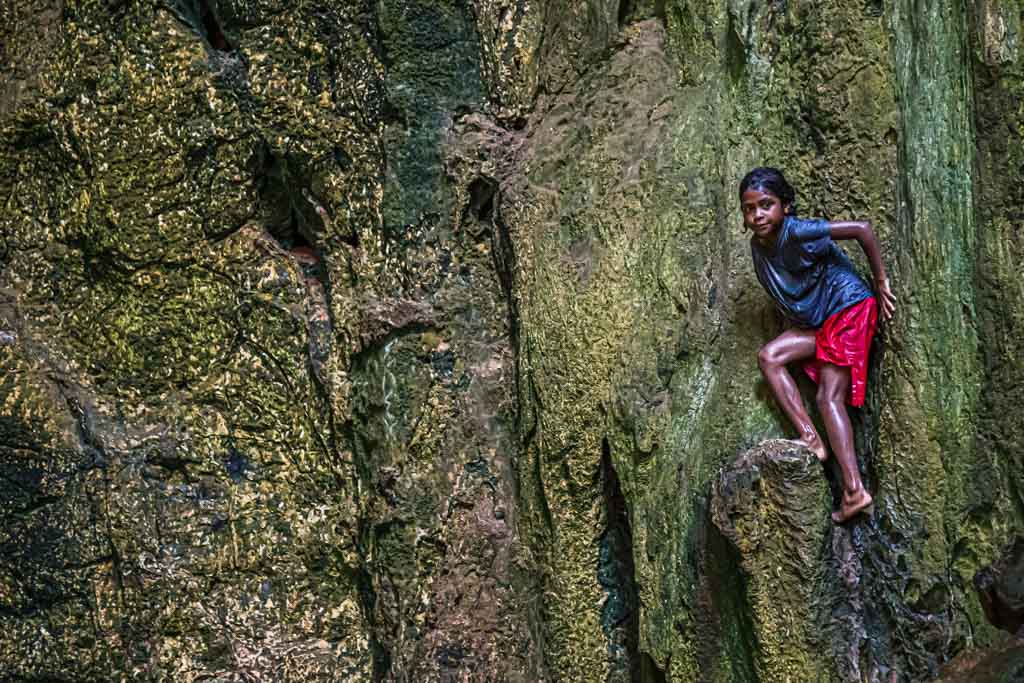
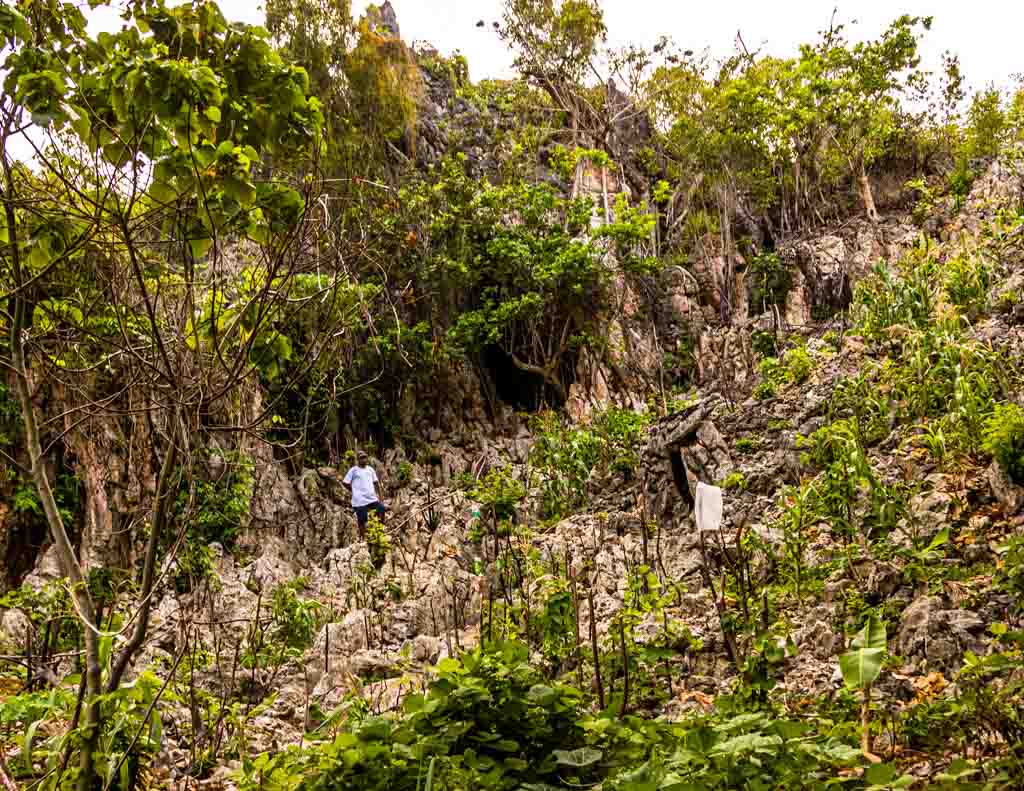
Warm rain and a wet sailing regatta
Although the True North has access to land on every coast, water is not neglected as an element. With six adventure boats you can go fishing, snorkeling, diving or simply sightseeing.
The Polynesians have always had the reputation of being the most perfect sailors. Even today, they are admired for their talent by modern seafarers. The trip in a classic outrigger sailboat becomes an unforgettable experience.
Until recently, the traditional Prau boats were able to compete with the fastest high-tech boats at the Americas Cup. The reason is believed to be the special aerodynamics of the triangular delta sail, also known as the cancer scissor sail. It’s hard to believe that this technology was invented here in Polynesia 10,000 years ago.
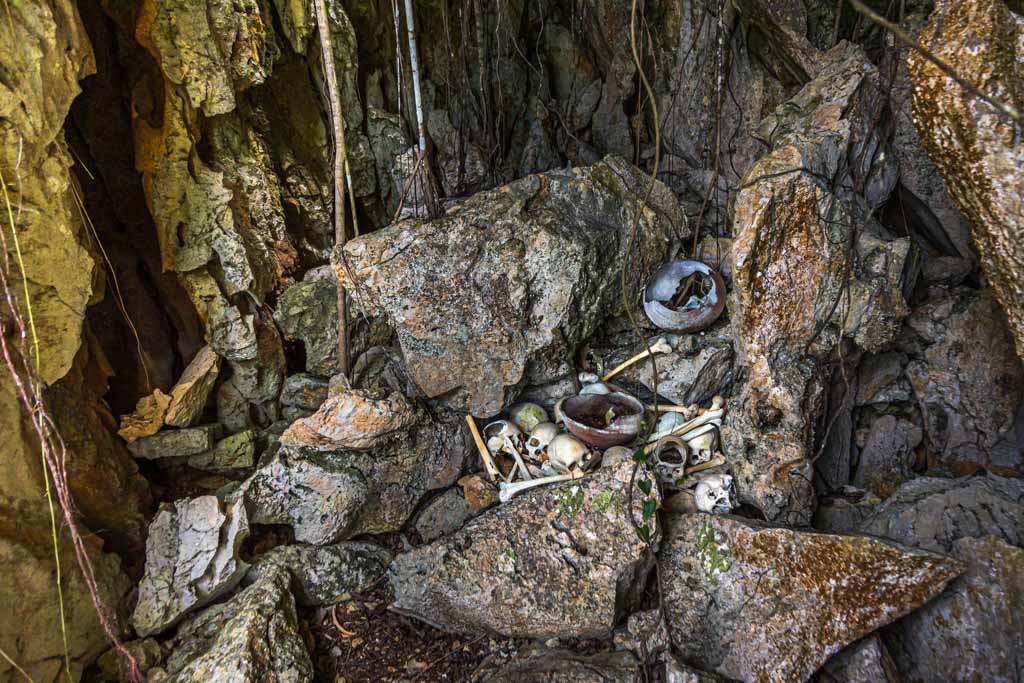
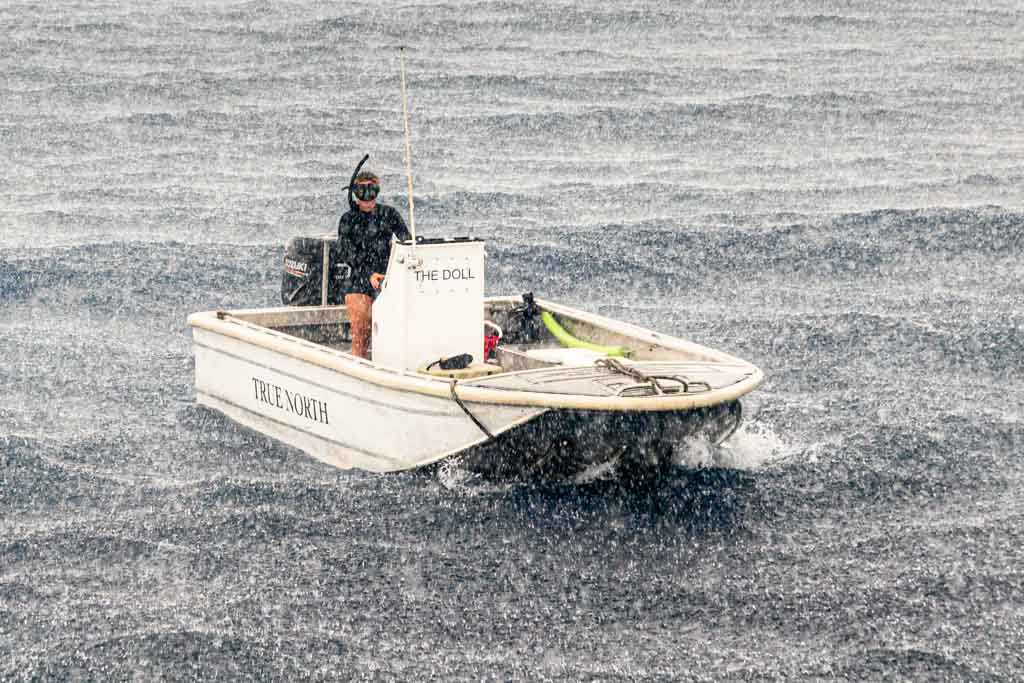
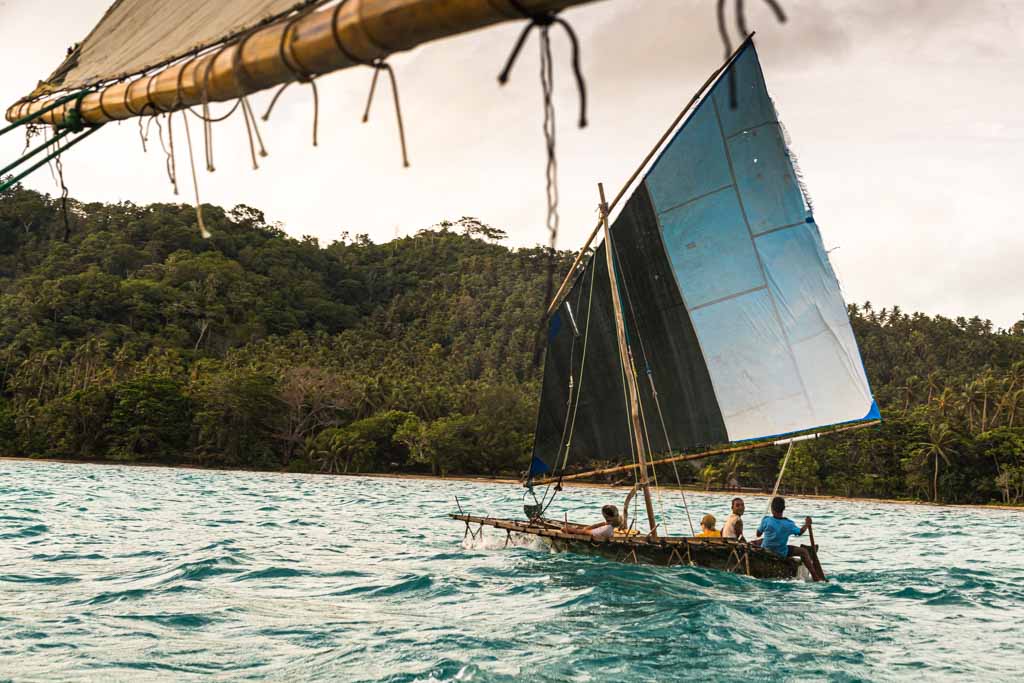
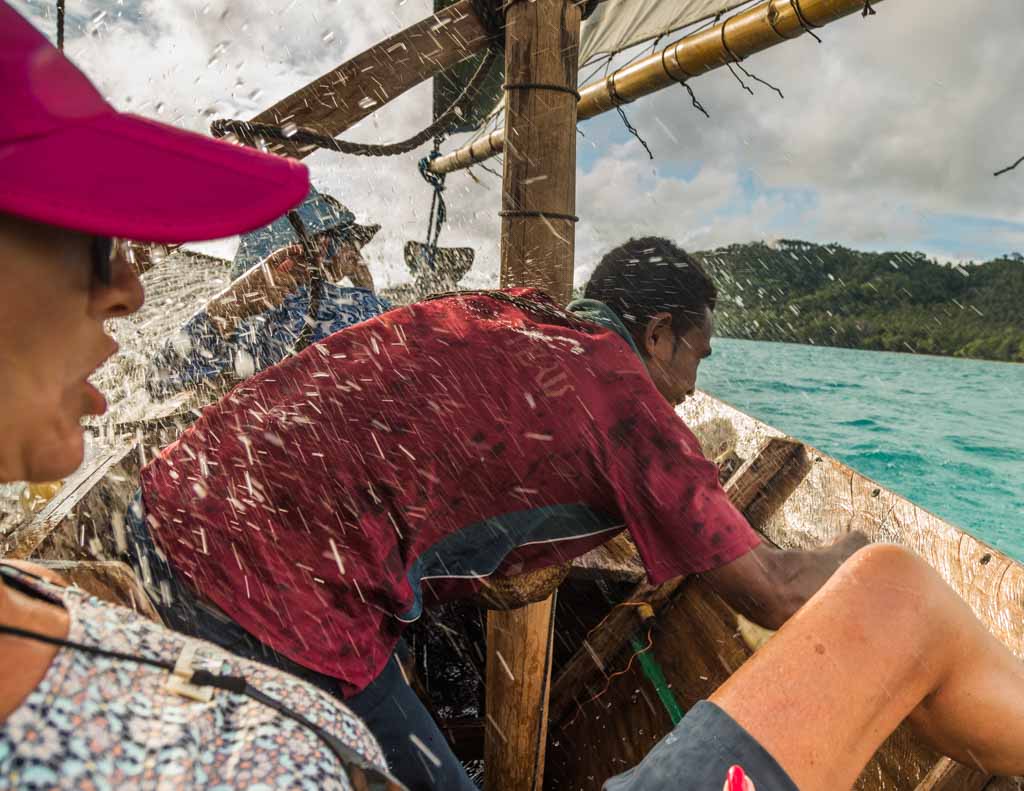
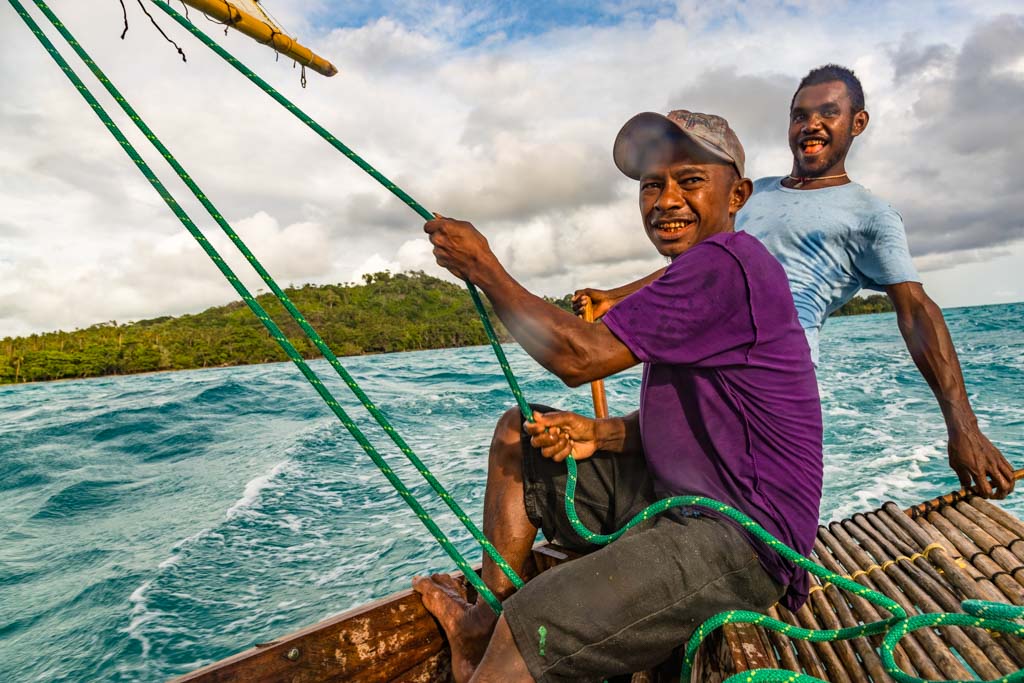
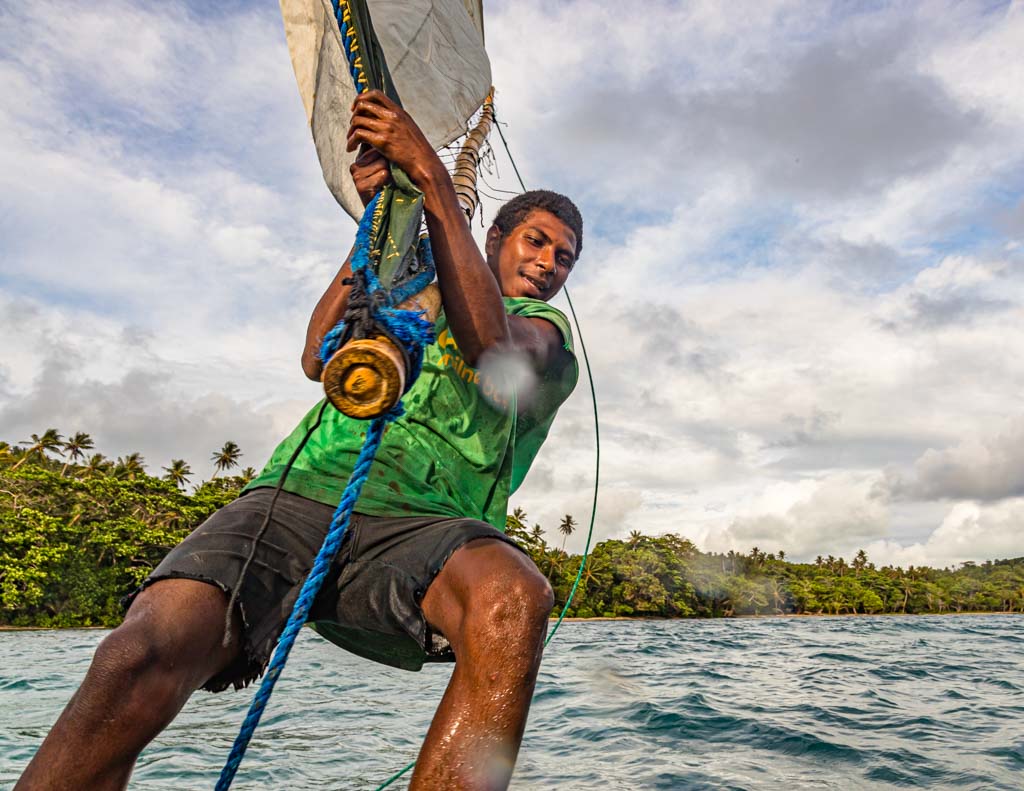
Cultural diversity and political separation
On the 11-day tour with the True North, we get a fairly representative impression of the country with the world’s greatest cultural diversity in the numerous shore excursions. There are 830 different languages spoken in Papua New Guinea and it is good to have someone on board with Simon Tewson who, in addition to the smooth communication, is always on the lookout himself. During his stay in Bougainville, he was able to persuade the vice president of the autonomous region to visit on board.
Bougainville was a German colony until the First World War and was then under English, Japanese, New Zealand and Australian influence. Even when it was added to Papua New Guinea, which had been granted independence in 1974, the very nature-loving residents could not accept the foreign determination. Especially since the lucrative open-cast copper mining in the Panguna mine poisoned large areas of Bougainville and made it uninhabitable for decades.
After the civil war against the government army of Papua New Guinea and a long transition period as an autonomous region, when we arrived in Bougainville it was clear that the referendum was 98 percent in favor of independence.
After years of isolation and political uncertainty, confidence is spreading. Anyone who learns that I come from Germany expresses the hope that Bougainville will also be noticed by us and will soon be accepted as a new member of the international community.
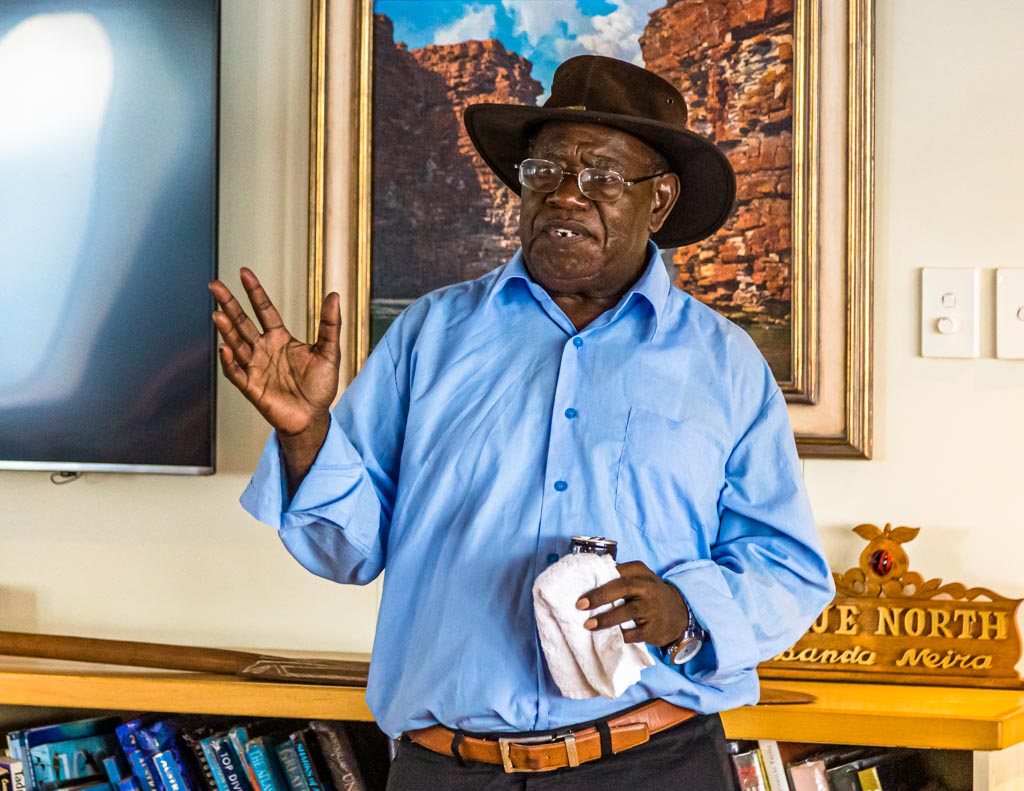
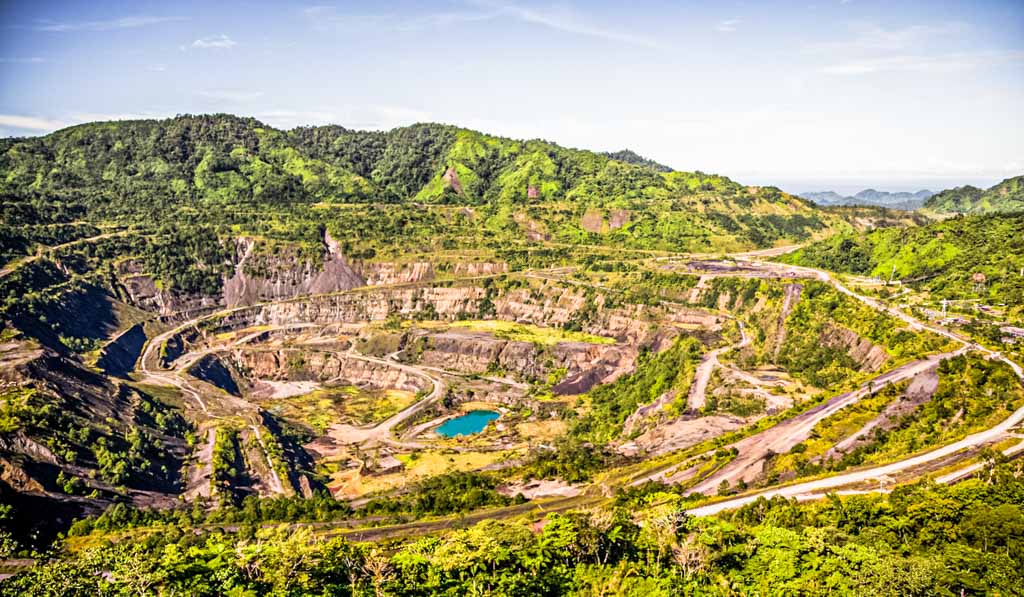
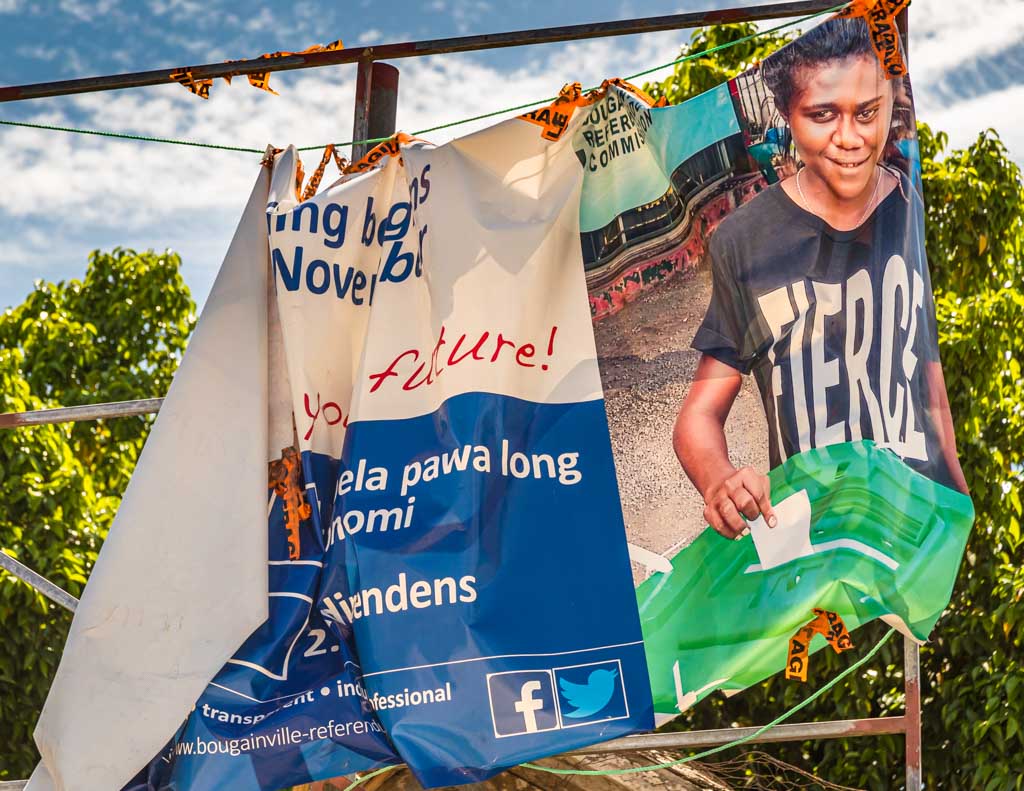
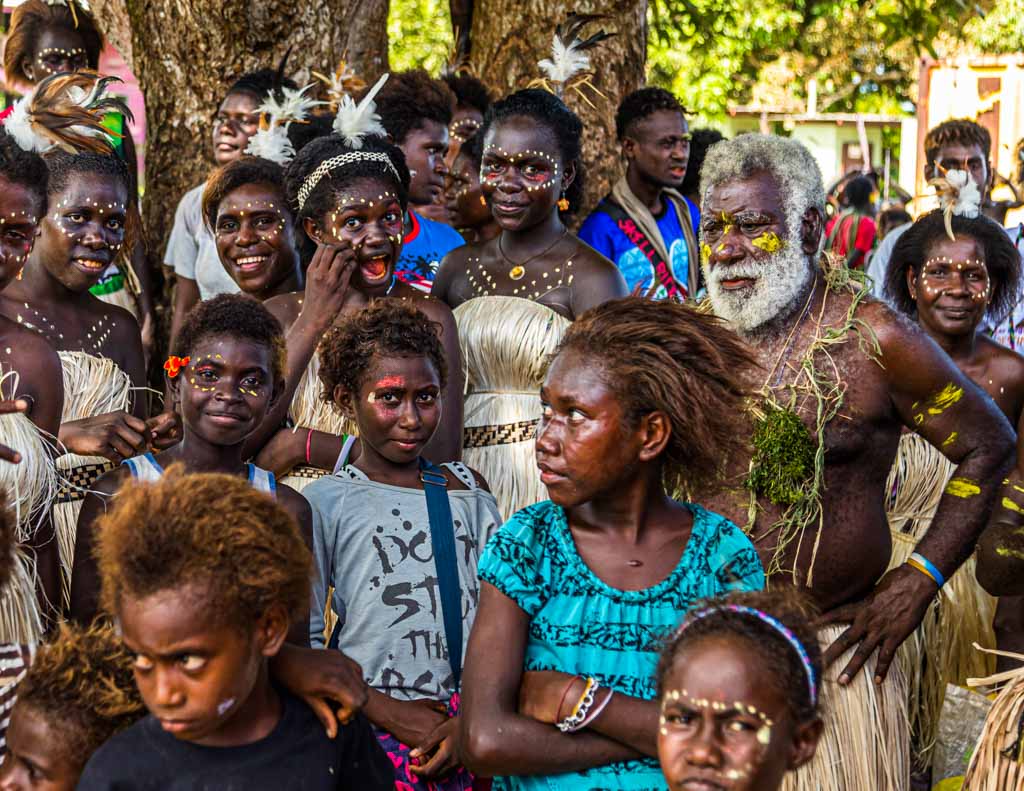
Wet landing on the beach
Whenever Simone, our cruise director announces a wet landing , the adventure begins for the guests on the beach.
Even if there is a lot of motion on the ocean , as Captain Gav knows how to curb big waves rhetorically, his crew brings all guests safely ashore.
The encounter with the locals is very respectful everywhere. With useful souvenirs, individual True North passengers return the hospitality they have experienced on previous trips.
In addition to fishing supplies and money, it is primarily balls and stationery for schoolchildren that True North supports the population with. Especially in exchange with the local teachers, you can learn what is urgently needed on the extremely remote islands. Hard to imagine: people only see a doctor once a year – sometimes .
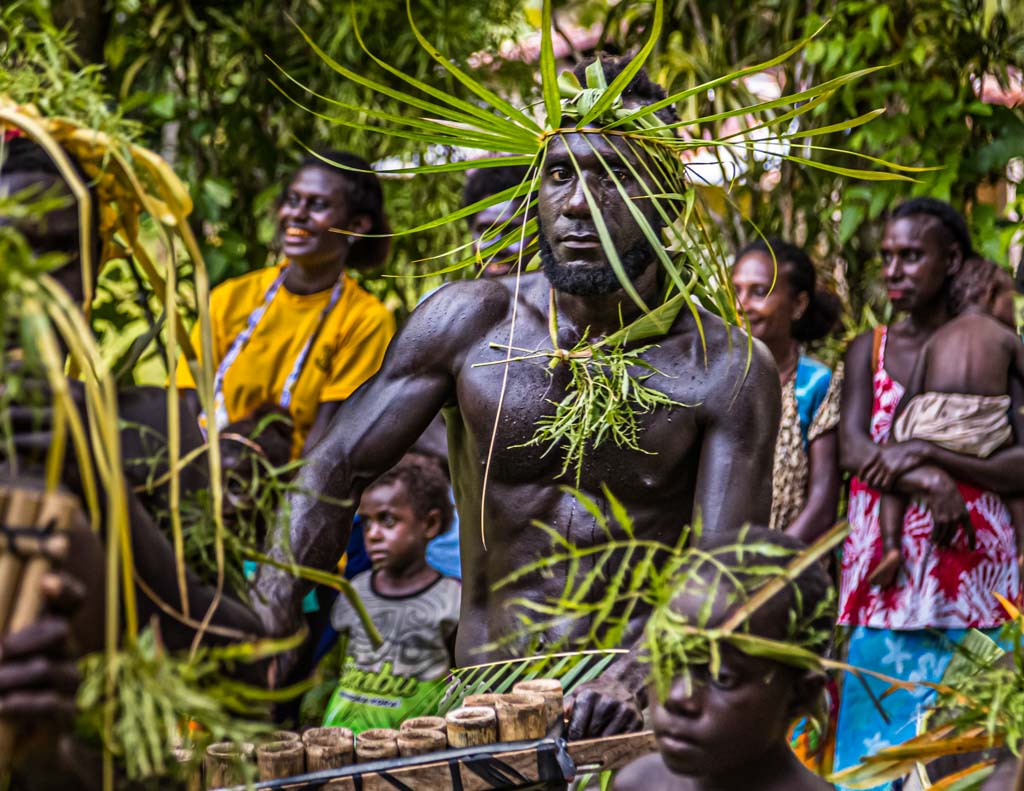
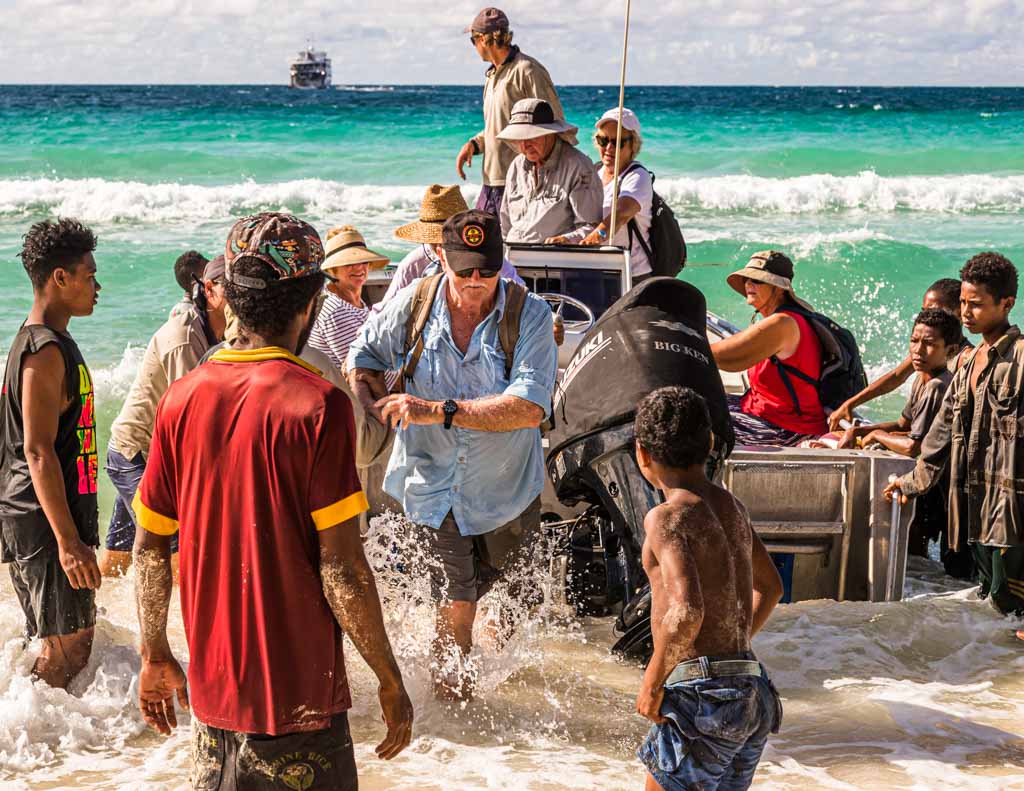
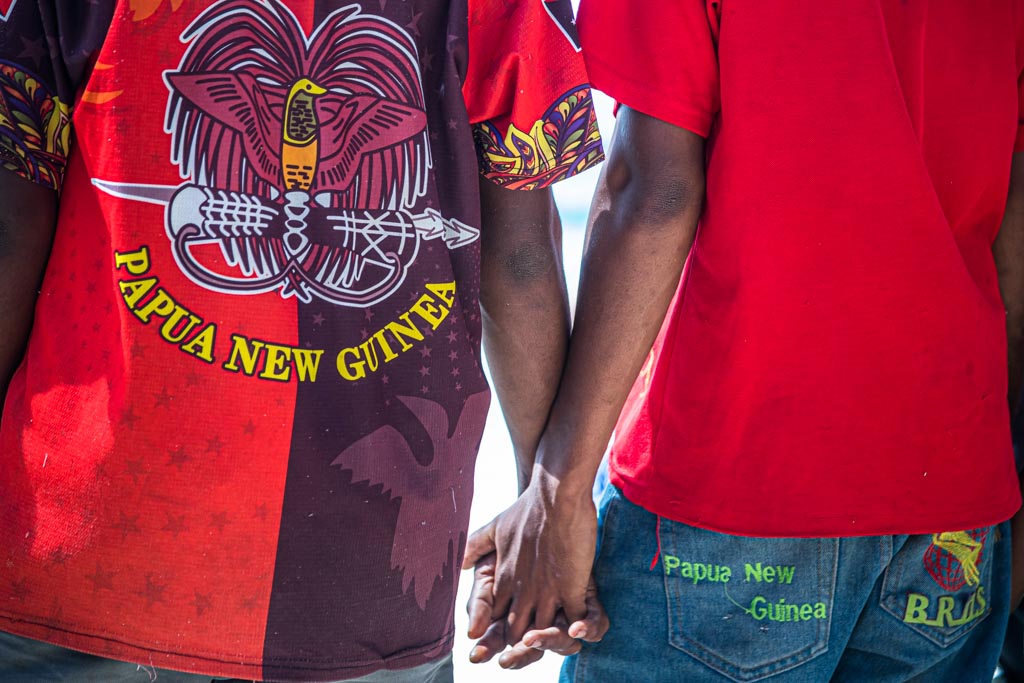
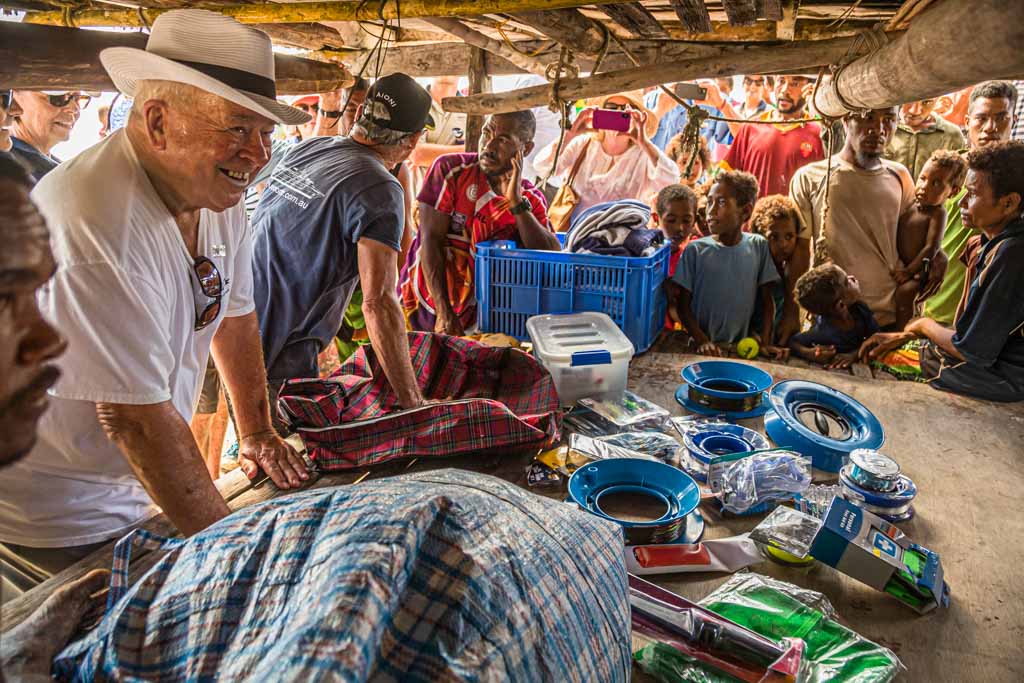
Cricket instead of fighting
We were challenged to a sporting competition on the Trobriand Islands , which are also known as the Islands of Love because of the permissive sexual ideas.
The game of cricket was introduced in the Trobriand Islands to redirect men’s argumentative dispute into peaceful channels. Colorful and colorful, the two teams roar roaring into the arena. Their battle cries go through the bone as you play and you don’t want to know what the translation is. First, the two local teams play against each other. Gradually, foreign visitors also take on their own roles as throwers or clubs.
Everywhere in Papua New Guinea people like to celebrate and sing. These festivals are called Sing-Sing in the common Pidgin language, even if they are very different from each other.
